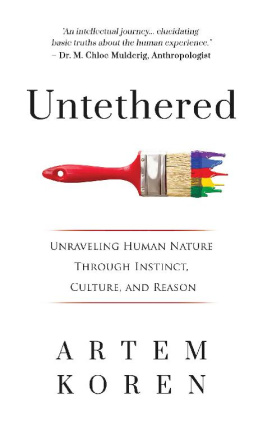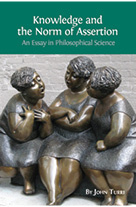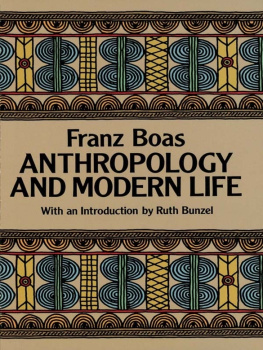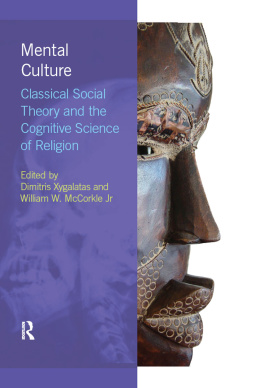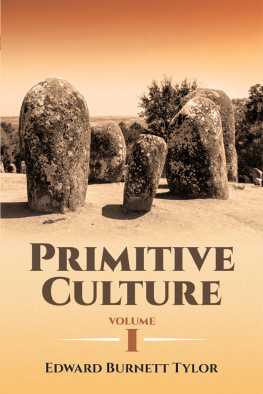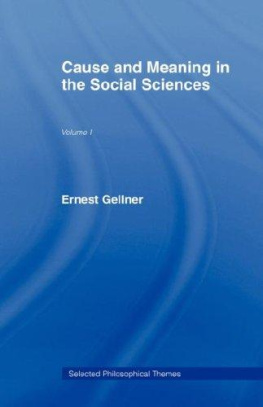Routledge Library Editions
MEANING IN CULTURE
Routledge Library Editions
Anthropology and Ethnography
SOCIAL AND CULTURAL ANTHROPOLOGY
In 16 Volumes
I | Social Anthropology and Language | Ardener |
II | The Relevance of Models for Social Anthropology |
Banton |
III | The Social Anthropology of Complex Societies |
Banton |
IV | Other Cultures | Beattie |
V | Social Anthropology | Evans-Pritchard |
VI | Meaning in Culture | Hanson |
VII | The Social Anthropology of Radcliffe-Brown |
Kuper |
VIII | History and Social Anthropology | Lewis |
IX | The Social Context of Violent Behaviour | Marx |
X | Seasonal Variations of the Eskimo | Mauss |
XI | Socialization | Mayer |
XII | Egyptian Religion | Morenz |
XIII | The Foundations of Social Anthropology | Nadel |
XIV | Japanese Culture | Smith & Beardsley |
XV | Taboo | Steiner |
XVI | Social Life of Early Man | Washburn |
MEANING IN CULTURE
F ALLAN HANSON
First published in 1975
Reprinted in 2004 by
Routledge
2 Park Square, Milton Park, Abingdon, Oxon, OX14 4RN
Transferred to Digital Printing 2006
Routledge is an imprint of the Taylor & Francis Group
1975 F Allan Hanson
All rights reserved. No part of this book may be reprinted or reproduced or utilized in any form or by any electronic, mechanical, or other means, now known or hereafter invented, including photocopying and recording, or in any information storage or retrieval system, without permission in writing from the publishers.
The publishers have made every effort to contact authors/copyright holders of the works reprinted in Routledge Library Editions Anthropology and Ethnography. This has not been possible in every case, however, and we would welcome correspondence from those individuals/companies we have been unable to trace.
These reprints are taken from original copies of each book. In many cases the condition of these originals is not perfect. The publisher has gone to great lengths to ensure the quality of these reprints, but wishes to point out that certain characteristics of the original copies will, of necessity, be apparent in reprints thereof.
British Library Cataloguing in Publication Data
A CIP catalogue record for this book is available from the British Library
Meaning in Culture
ISBN 978-0-415-33031-2
Miniset: Social and Cultural Anthropology
Series: Routledge Library Editions Anthropology and Ethnography
Printed and bound by CPI Antony Rowe, Eastbourne
Meaning in culture
F. Allan Hanson
Associate Professor of Anthropology,
University of Kansas
Routledge & Kegan Paul
London and Boston
First published in 1975
by Routledge & Kegan Paul Ltd
Broadway House, 6874 Carter Lane,
London EC4V 5EL and
9 Park Street,
Boston, Mass. 02108, USA
Set in Monotype Times
Copyright F. Allan Hanson 1975
No part of this book may be reproduced in
any form without permission from the
publisher, except for the quotation of brief
passages in criticism
ISBN 0 7100 8132 4
and this is for
Katie, George, and Brian
Contents
One important view of social science represented by thinkers like Dilthey, Collingwood and Weber, among others holds that the critical thing about human phenomena is that they are intrinsically meaningful. This is taken as grounds for distinguishing human affairs sharply from natural phenomena, for the latter are deemed to lack inherent meaning. This book attempts to work out the logic of a social science which purports to explore the intrinsic meaning of human phenomena; more specifically, it is concerned with a particular form of such a social science, which will appear before too many pages are past under the label institutional analysis. My argument will be sympathetic to institutional analysis because, properly laid out, I think it is a legitimate and important way to study human phenomena. In addition, it is the way which happens to appeal to me most.
A claim that human phenomena have intrinsic meaning which meaning should be a major object of our investigation immediately confronts a series of questions which are ultimately philosophical in nature. The chapters which follow are attempts to frame those questions clearly and to resolve them. One such question asks where this meaning is located. Is it entirely with the agents, so that a human event can have neither more nor less meaning than is attributed to it by its perpetrator(s)? Or is there also some meaning in culture of which natives are unaware? And if so, does that imply that culture is some kind of superorganic entity with ends of its own? These issues are discussed in .
Then there is the question of cultural relativism. If human phenomena are intrinsically meaningful, presumably to be fully understood that meaning should be grasped internally, in its own terms, rather than according to alien criteria. But can we possibly grasp the intrinsic meaning of events in cultures radically different from our own? How can we evaluate the morality of deeds or the.
Finally, if human phenomena have intrinsic meaning while natural phenomena do not, can the study of such meaning be scientific? One school, call it idealist, holds that precisely because the focus of the human studies is on intrinsic meaning, the methods of science are not applicable to them. Another school, the positivist, holds that scientific procedures are appropriate indeed, necessary for the objective study of all phenomena, human as well as natural. In some variants, positivism even banishes the study of meaning in human affairs as unscientific. Disenchanted with the polar extremes, scholars such as Max Weber have attempted to chart a synthesis of idealism and positivism, wherein the intrinsic meaning of human phenomena remains the prime object of study in an investigation which nevertheless qualifies as scientific. These issues form the subject of .
By the end of , my aim is to have established institutional analysis as a mode of inquiry which focuses on the intrinsic meaning of human phenomena, which enables us to go well beyond native awareness in quest of such meaning (but not at the expense of reifying culture into a purposive being), which entails understanding of alien cultures in their own terms (in the only coherent sense that phrase can have), and which is thoroughly scientific.


